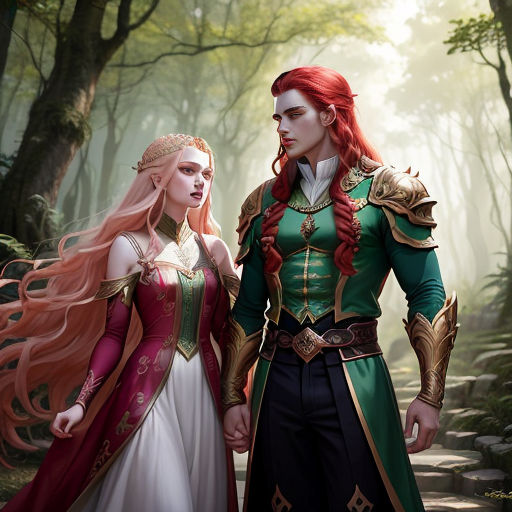
The Dragon's Transformation
By Storybird

01 Oct, 2023
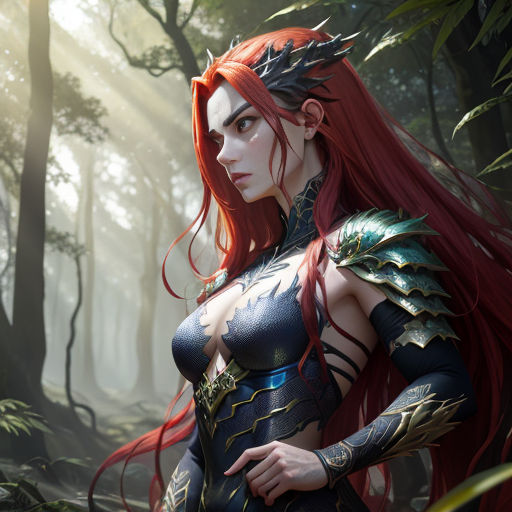
Drakon, a fearsome dragon renowned throughout the kingdom, woke up one morning to a startling discovery. He was no longer within his scaly, fire-breathing form. Instead, he was trapped in the body of a human woman.
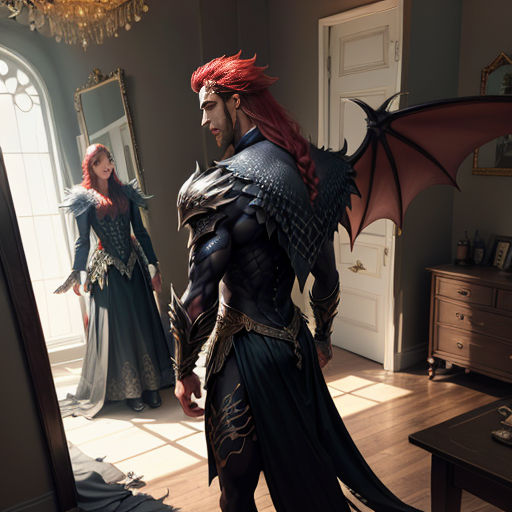
He looked at his new reflection in the mirror, taking in the unfamiliar sight. His once sharp claws were now delicate fingers, his wings were gone, and his scales had turned into smooth skin.

In shock and confusion, Drakon turned to the only human he knew for help - the princess he had kidnapped not long before his transformation.
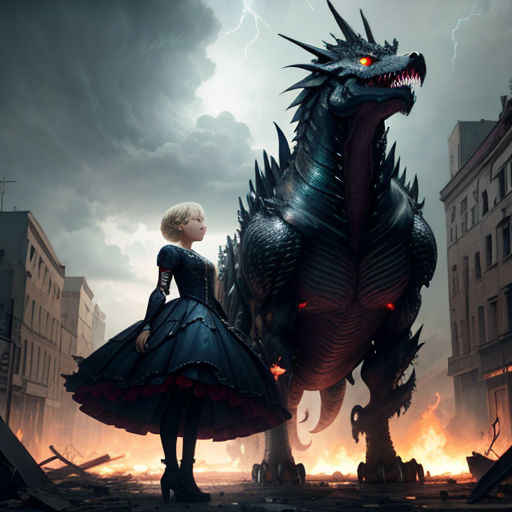
Princess Ariella, a young woman with a courageous spirit, had not expected this twist either. Despite their history, she felt a degree of sympathy for Drakon and agreed to help him.
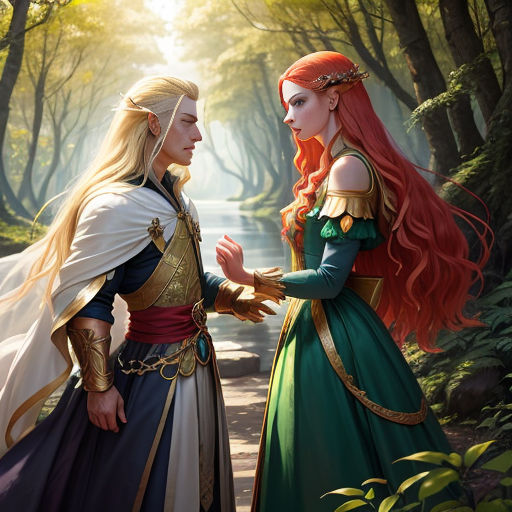
Ariella started by teaching Drakon how to walk on two legs. The process was slow and frustrating, but he was determined to adapt to his new body.
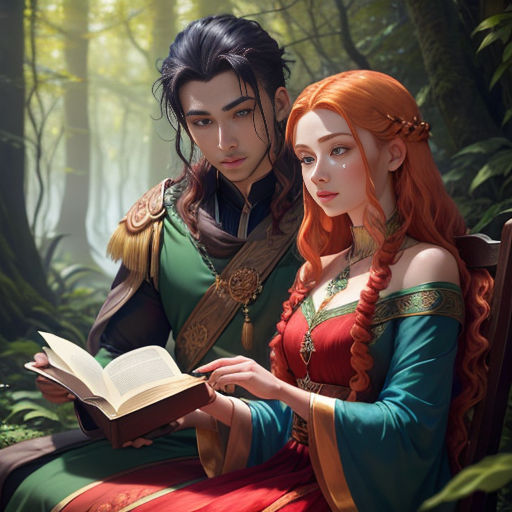
Next came the task of learning to speak in a human tongue. Dragons spoke in roars and growls, and the soft, lyrical language of humans was challenging for Drakon.
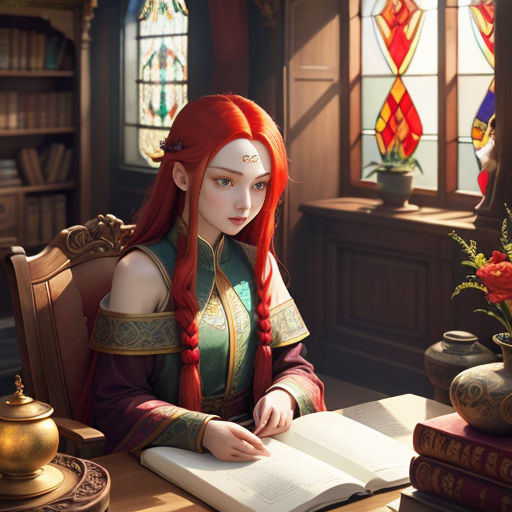
Over time, Drakon began to understand and mimic human speech. Ariella was patient with him, repeating words until he could pronounce them correctly.
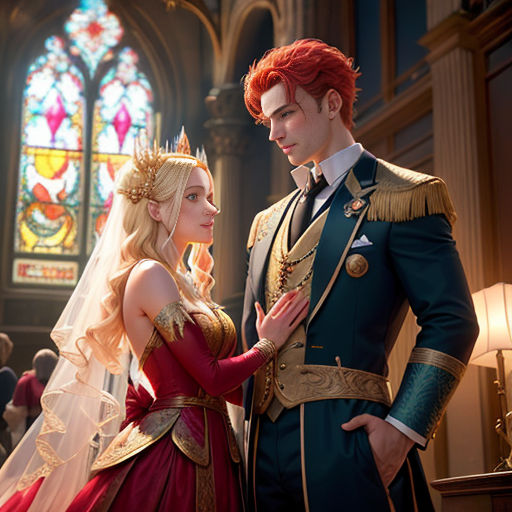
Days turned into weeks, and each day was filled with new lessons. Ariella taught Drakon about human customs, etiquette, and even how to wear clothes.
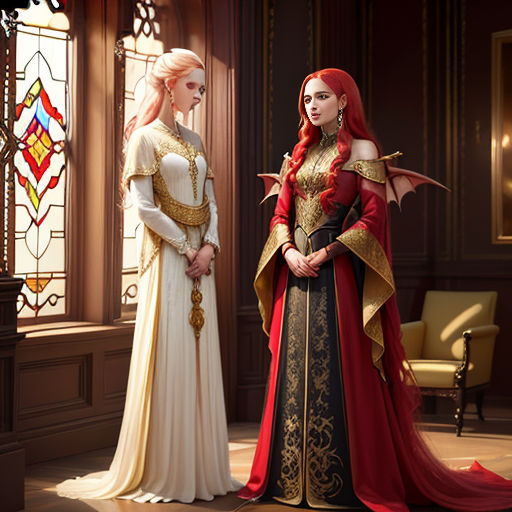
Drakon found the idea of covering his body in fabric amusing. Dragons, after all, wore nothing but their scales. But he played along, trying to embrace his new reality.
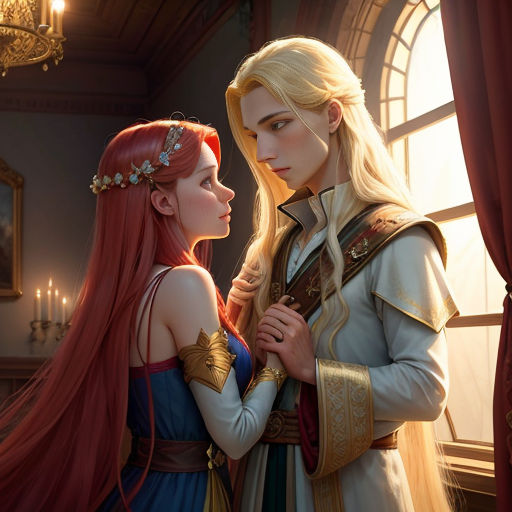
Despite the drastic change, Drakon and Ariella found themselves growing closer. They spent long hours talking, sharing thoughts and feelings that neither had expressed before.
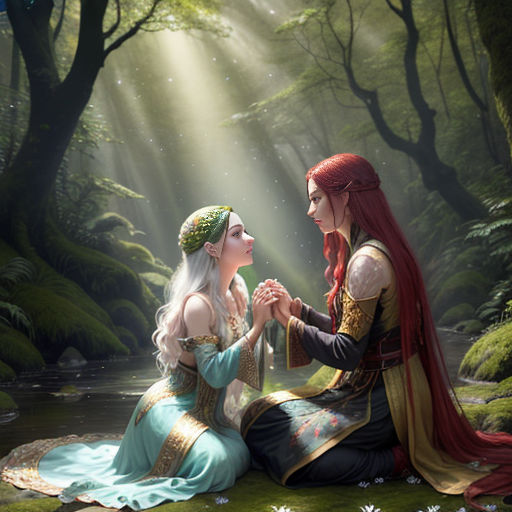
Drakon began to see the princess not as a captive, but as a friend. And Ariella, in turn, saw the gentle soul behind the dragon's fearsome reputation.
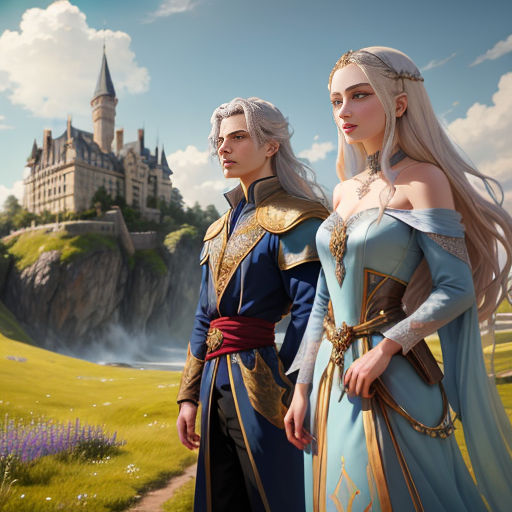
One day, Ariella suggested they venture outside the castle. Drakon was apprehensive, but she assured him that it was safe. She was confident in his progress.
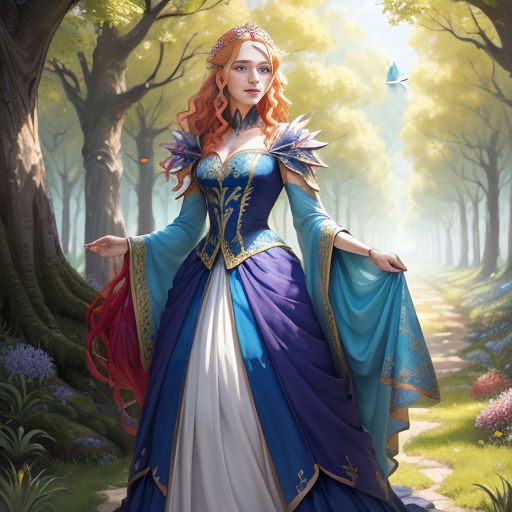
The outside world was a sensory overload for Drakon. The bright sunlight, the sounds of nature, and the scent of flowers were all new to him.

Ariella showed him the beauty of the world beyond the castle walls. They strolled through gardens, watched the sunset, and even shared a simple meal together.
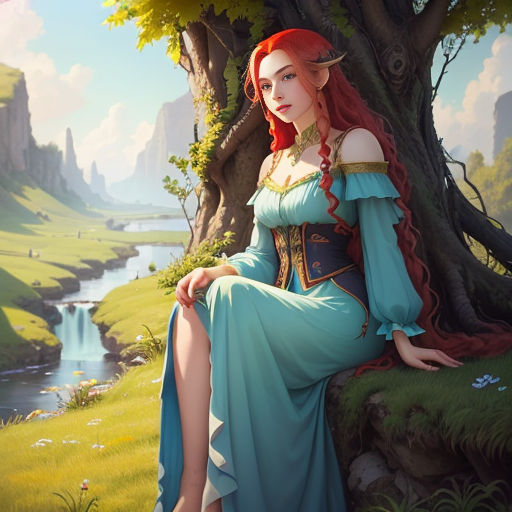
As the days passed, Drakon grew more accustomed to his new life. He found pleasure in simple things, like the taste of fresh fruit or the feeling of cool grass under his feet.
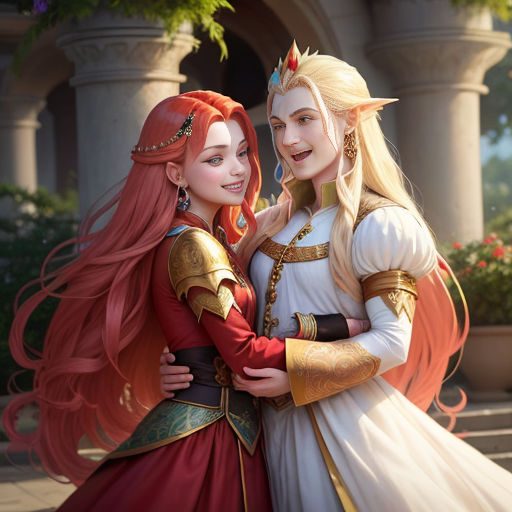
He learned to laugh and cry, to express his feelings in ways he never had before. He realized that being human wasn't so bad after all.
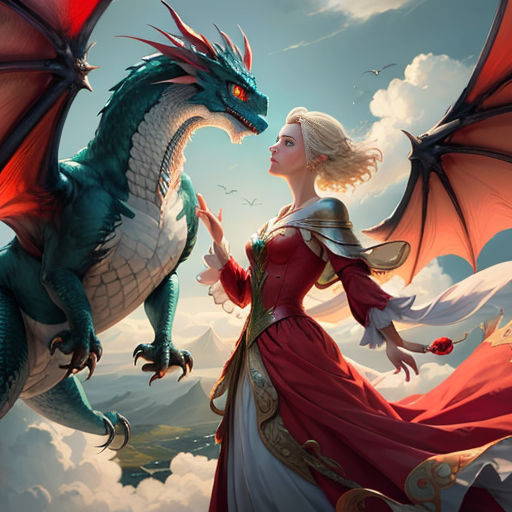
Despite his acceptance, Drakon couldn't help but miss his dragon form. He yearned for the freedom of flight, the power of his roar, and the strength of his claws.
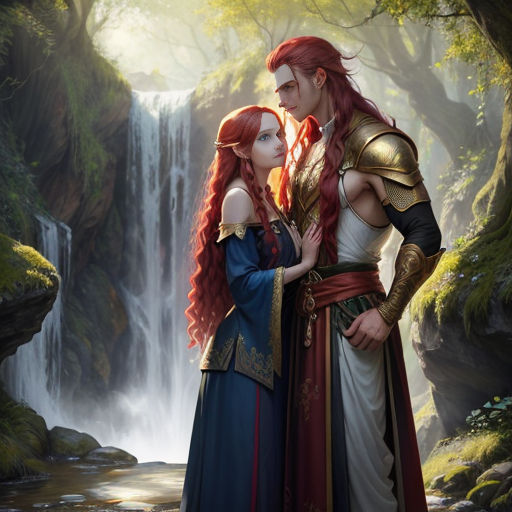
Ariella understood his longing. She promised to help him find a way to return to his original form, if that was what he truly desired.
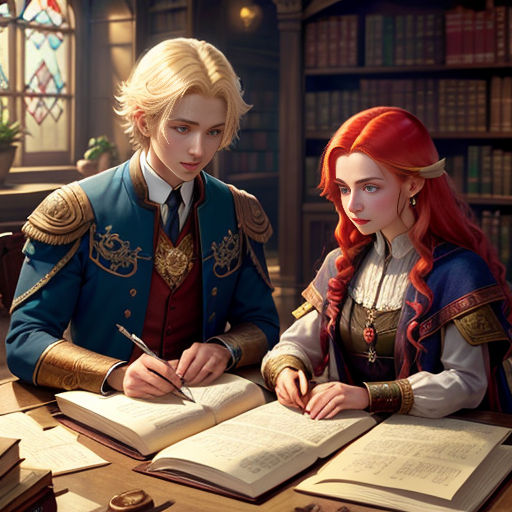
But as they delved into ancient texts and consulted wise sages, Drakon began to question his wish. He had learned so much and experienced so many things as a human.
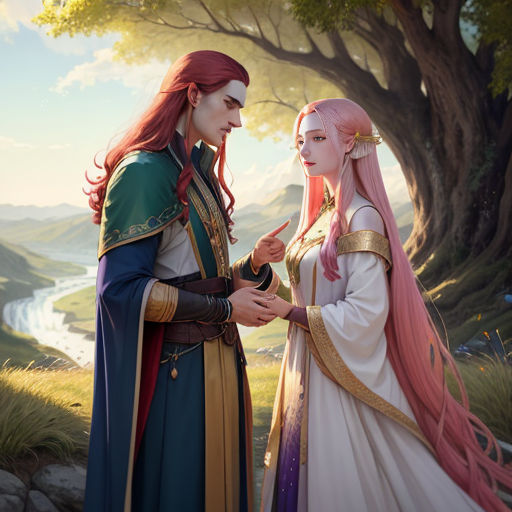
He found joy in his friendship with Ariella, the warmth of human interaction, and the beauty of the world that he had overlooked as a dragon.
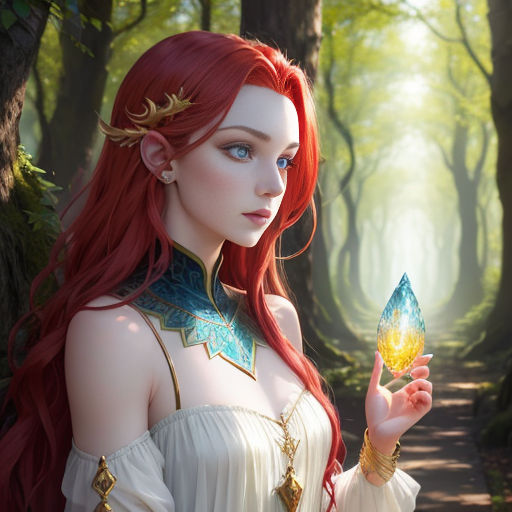
When the day came that they found a spell that could transform him back, Drakon hesitated. He realized he was not the same dragon that he had been before.
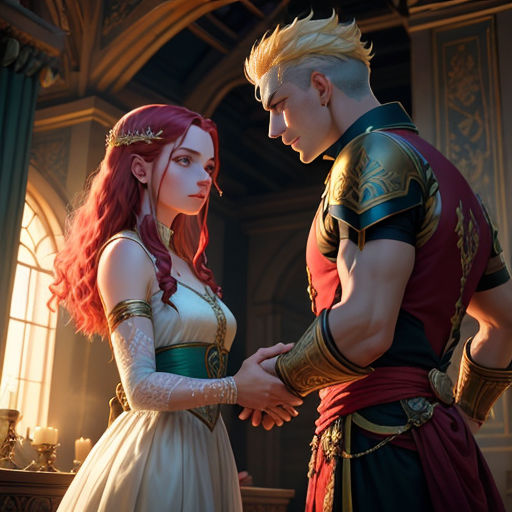
Ariella looked at him and asked if he was sure about his decision. Drakon took a deep breath, looked back at her, and shook his head. He had chosen his new life.
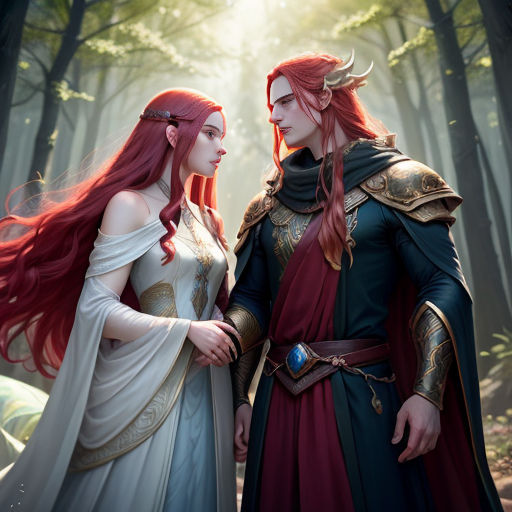
Their journey had changed them both. Drakon, the fearsome dragon, had become a compassionate human. And Ariella, the captive princess, had found a loyal friend.
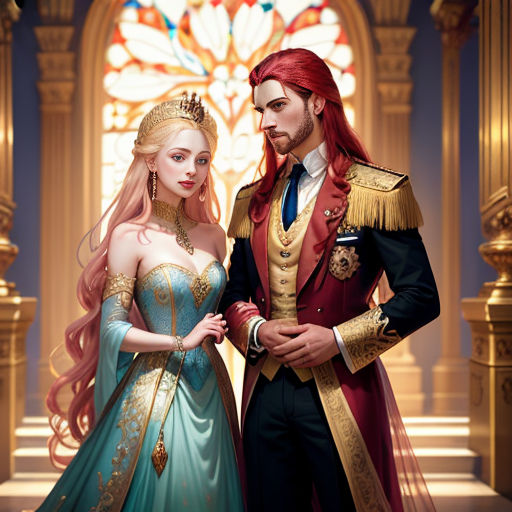
They continued their life together in the castle, no longer as captor and captive but as friends. Drakon embraced his new life, and Ariella was glad to have him by her side.
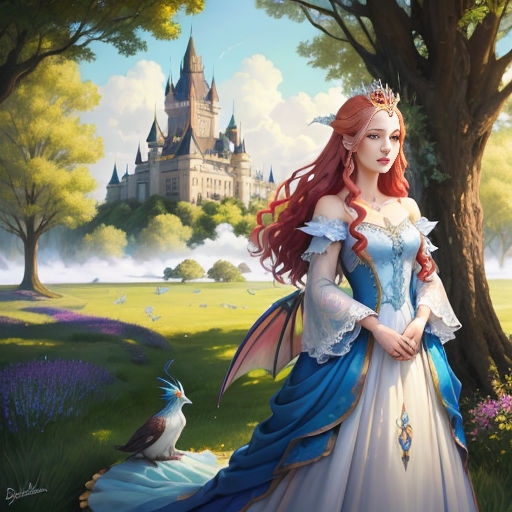
And so, the dragon and the princess lived out their days in peace. Their story became a legend in the kingdom, a tale of transformation, friendship, and acceptance.